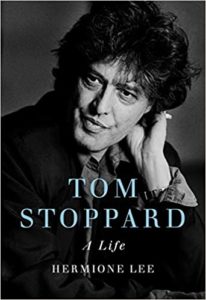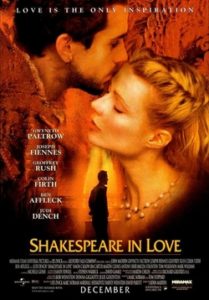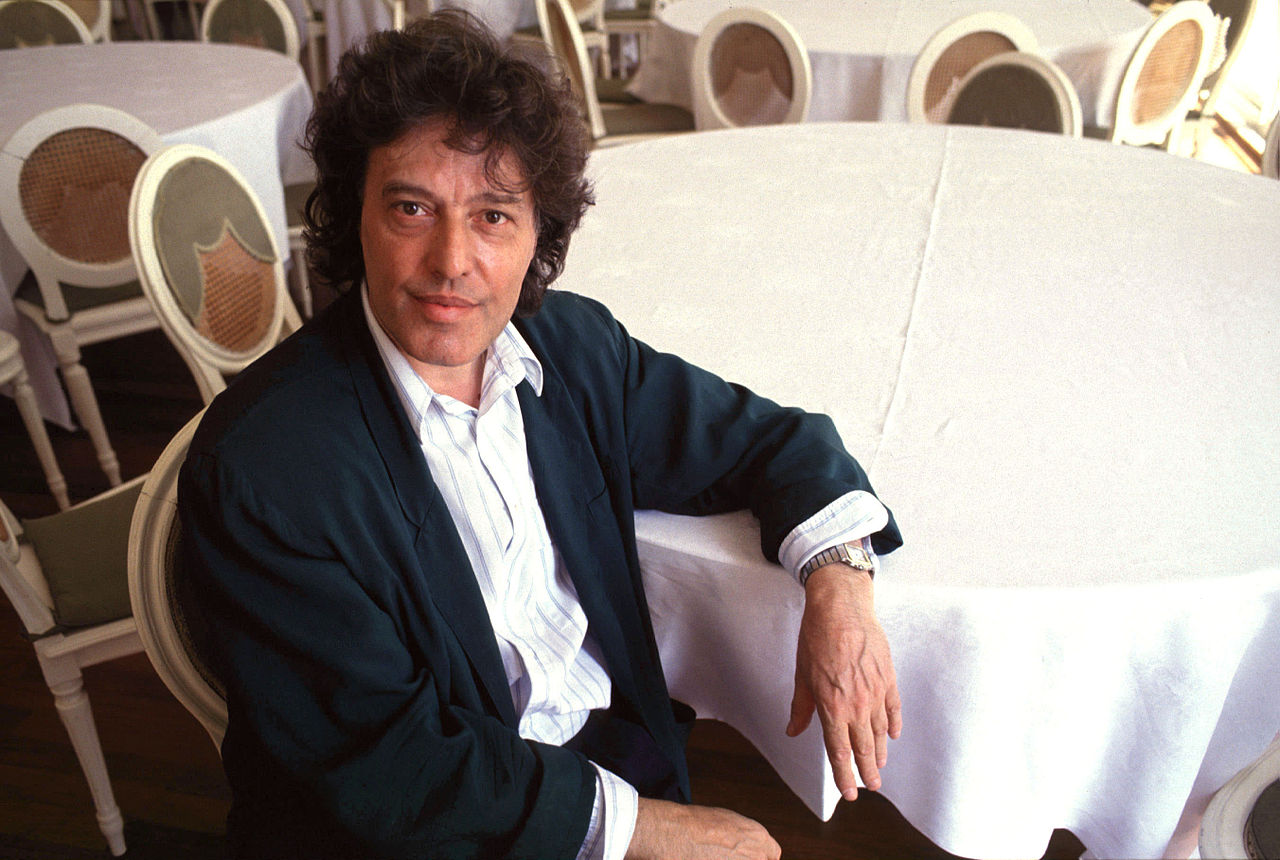I’m reading Tom Stoppard’s biography by Hermione Lee. I never thought I could read 900 pages on a subject previously unimportant to me with such delight. It is a marvelous book. Stoppard’s life is interesting and eventful, it provides a good glimpse into the world of culture and entertainment in the last quarter of the 20th century. Plus, Lee’s analyses of Stoppard’s plays are masterful.

One thing that comes out of Lee’s biography of Stoppard is how independent-minded he was, and how—as opposed to many of his colleagues—he never conceived of himself as a guru, nor a “joiner” of good causes. For example, when some of his fellow playwrights signed a letter to endorse a ban on all performances to segregated audiences, so as to signal their support for the anti-apartheid fight, he chose not to. “His instinct was against ‘isolationism’. He preferred to give his royalties to an anti-apartheid organization” but allow people to see his work.
Lee reports this comment from Stoppard to the campaigner who wanted him to join: “Of course the idea of a segregated audience is abhorrent. So too is the idea of a playwright being imprisoned or otherwise victimized for his work—but did any of your signatories, I wonder, ban productions of their plays in this time last year in Czechoslovakia, or in Poland?”. Stoppard was shocked at the hypocrisy at the invasion of Prague in 1968 and was critical of the simultaneous disdain for Western institutions and total blindness to what was happening behind the Iron curtain so common in those years among intellectuals in the “free world”.
Stoppard is hardly an “unphilosophical” writer. His work is filled with profound philosophical riddles. I never saw a performance of “Jumpers”, perhaps his most philosophical play, but after reading Lee’s book I know that, as soon as theaters come to life again, I’ll search for it. Nor did Stoppard stay away from political engagement. Quite the opposite. But his politics were quite different than many others’. See this intriguing piece by the late Norman Barry. On politics, he had a great line, used more than once in his plays: political opinions are often, and perhaps entirely, a function of temperament.
Moreover, Stoppard was not convinced that good theatre is only an occasion for a writer to show off as a good person – or an erudite one. He maintained that “a theatre’s job is to prevent people from leaving their seats before the entertainment is over”.
My acquaintance with Stoppard’s work is limited (I am not much of a theatre-goer), but the book leaves you thirsty for more. So I ended up watching and re-watching a few films to which he contributed his writing (though he preferred theatre to the cinema). I was struck by Shakespeare in Love, which I watched as a kid and found amusing, and found amusing again today. It is a constant stream of wit and jokes and deals lightly with some very important subjects, beginning with: can theatre, and art more generally, show us the nature of love?

Lee points out that “the most joyous parts of the film are the challenges of getting a play funded, cast, written into rehearsal and onto the stage. It’s a loving, comic tribute to the theatre”. There is an element in the plot that I think can be considered as subtly McCloskeyan. It hasn’t to do with Shakespeare per se, but rather with “the challenges of getting a play funded”. Most of the works of the bard “sing of honorable aristocrats or comical peasants or sweet shepherds” in spite of the fact “his audience included a big promotion of the merchants and apprentices of businesslike London” (McCloskey, Bourgeois Dignity).
In “Shakespeare in Love”, impresario Philip Henslowe is in debt to the ruthless moneylender Fennyman. At the beginning of the movie, the latter is hardly a commendable person. But he is struck by the magic of theatre. He profoundly connects with the beauty of Romeo and Juliet, perhaps more than Henslowe, for whom the theatre is routine. Fennyman becomes a committed investor, a friend of actors, and, for a brief and hardly memorable moment, an actor himself. I suppose some people may consider his story a sort of redemption via art. I consider it quite differently. I think it is great for Shakespeare in Love to show us that business people are not blind to art and can actually grasp it better than others. It emphasizes their humanity. On the contrary, the most dislikable character in Shakespeare in Love is Lord Wessex, who marries for money, is both aristocratic and quite dishonorable in his actions, and is totally oblivious to artistic expression. In the movie, Stoppard of course celebrates those who understand art and beauty whatever class they belong to, as if they were members of a fraternity that includes usurers, apprentices, nurses, and Queen Elizabeth herself. A great celebration for art but also an indirect appreciation of the profound humanity of those who work with money and yet can be sensitive souls too.


READER COMMENTS
Weir
Jan 13 2021 at 5:52pm
Don’t forget the sociology in Travesties: “What is an artist? For every thousand people there’s nine hundred doing the work, ninety doing well, nine doing good, and one lucky bastard who’s the artist.”
Komori
Jan 13 2021 at 9:12pm
If you’re interested in Stoppard influenced movies, I highly recommend Brazil. The collaboration between Stoppard and Gilliam (and Charles McKeown) remains one of my favorite movies of all time.
Nicholas Ronalds
Jan 14 2021 at 4:52pm
Thanks Alberto, interesting entry. I may check out the biography (which isn’t out yet), and now have a couple of movies to add to my to-see list.
Phil H
Jan 14 2021 at 7:30pm
Stoppard is brilliant, both highbrow and funny and exciting enough to get bums on seats. I’m not opposed to a bit of art snobbery, but I agree that engagement with the commercial side of art is also really powerful.
nobody.really
Jan 14 2021 at 8:21pm
If you like Stoppard, you can’t beat The Real Inspector Hound.
If you like artistic expressions of the business of art, you can’t improve upon Sondheim’s “Putting It Together.” And when it comes to “Putting It Together,” you can’t improve upon Streisand’s version.
Procrustes
Jan 16 2021 at 4:56am
Thanks for the tip on the biography, Alberto. I will definitely be chasing that up.
I have been a Stoppard fan for decades but one of his later plays – “Rock ‘n’ Roll” – pulls a lot of his themes together, particularly his great distrust of the communist east. This has been constant thread through his work but had a hint of swimming against the tide in theatrical circles earlier in his career.
One side benefit of seeing the the first run of “Rock ‘n’ Roll” in London was that it meant that the Czech avant-garde jazz rock group heavily name-checked in the play (The Plastic People of the Universe) performed in London at about the same time as the play’s run. Interesting music, for sure. But even more moving was realising that a repressive regime had once imprisoned many members of the band for the crime of being musicians – disturbing the peace, they called it.
Another example of Stoppard’s independence of mind at work.
Comments are closed.